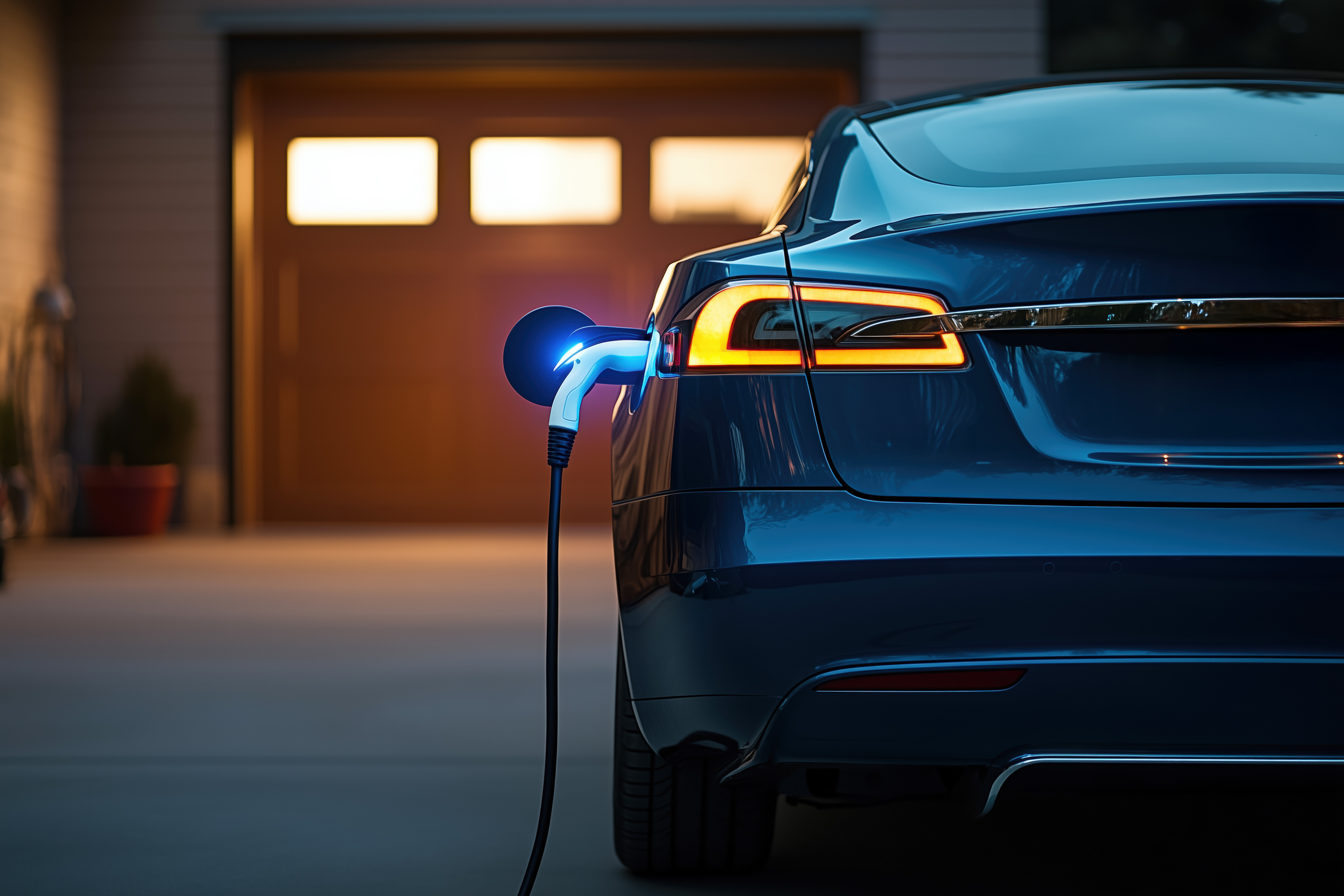With gas prices constantly fluctuating, many drivers are looking for ways to save money, as well as limit their impact on the environment with more eco-friendly cars. Hybrid cars are a great option if you’re looking to purchase a new vehicle but aren’t quite ready for the expense and commitment of a fully electric vehicle just yet.
But what is a hybrid vehicle and how do hybrid cars work? And is a hybrid car right for you?
In this article, we’ll go over the different types of hybrid vehicles available, as well as their respective upfront and long-term costs.
{{CTA-EV}}
What is a Hybrid Car?
A hybrid car is, as its name implies, a combination of a traditional gasoline-powered car and an electric vehicle (EV). Hybrids have both an internal combustion engine (ICE) and one or more electric motors.
Sometimes the electric motor does all the work of moving the car, sometimes the gas engine keeps things running, and sometimes both the ICE and the electric motor work together. Regardless of configuration, hybrid cars use less gas than traditional vehicles, which means better fuel economy and a lower impact on the environment.
Related: Compare a gas vs. electric car.
For many electric hybrid cars, the hybrid battery is charged not by plugging it into a charging station, but by the internal combustion engine and regenerative braking, so drivers don’t have to worry about finding charging stations when they drive long distances.
Learn about EV charging locations in Texas.
Types of Hybrid Cars
There are three main types of hybrid vehicles: mild, full, and plug-in.
Mild Hybrid Vehicle
In this configuration, the car is primarily powered by the gas engine, while the electric motor provides a brief boost when the car is fully stopped. The electric system also powers other components, such as the heating and cooling systems and the stereo. A mild hybrid is generally the cheapest hybrid car while still providing some savings over a traditional ICE-only vehicle.
Full Hybrid Vehicle
As the name implies, a fully hybrid car more equally shares driving responsibilities between the electric motor and gas engine. The electric system usually handles in-town or city driving, while the ICE takes over for longer highway trips. While a full hybrid is more expensive upfront than a gas-powered vehicle, drivers can enjoy greater fuel savings, and the vehicle retains a higher value over time. Just keep in mind that full hybrids may have higher maintenance costs because of their complex engines paired with the electric vehicle battery.
Plug-In Hybrid (PHEV)
Plug-in hybrid cars use the electric motor and battery as their primary energy source, using the internal combustion engine for additional power or as a backup. PHEVs tend to be the most expensive hybrid and luxury hybrid cars on the market, but they also offer the highest potential fuel savings and have the lowest emissions. If you decide to purchase a plug-in hybrid, you may want to install an electric charging station at your home or at least be aware of the locations of public charging stations on any route you take.
Related: Learn about the time it takes to charge an electric car.
The Benefits of Hybrid Cars
If you’re accustomed to a traditional gas-powered vehicle, driving a hybrid is very similar. Unlike with a fully electric car, you don’t have to rely on charging stations as gas is still an option, and many hybrid vehicles charge their own batteries with regenerative braking.
Hybrid cars are a great option if you want to improve fuel economy and save money on gas because they require fewer fill-ups. And while the upfront costs are often higher, there are many rebates and incentives available at the federal, state, and local level for purchasers.
Like electric vehicles, hybrids are more eco-friendly cars, with lower emissions as a result of burning less gasoline.
Are Hybrid Cars Worth It?
Whether you should invest in a hybrid car depends on your lifestyle, your commute, and your budget. If you have the ability to purchase a more expensive vehicle that will save you money over time, a hybrid may be the right option for you.
Plug-in hybrid cars typically work best for people who own their homes, so they have the option of installing a charging station. These vehicles are also good for drivers with relatively short commutes and those who don’t often drive long distances.
On the other hand, a full hybrid vehicle may be better for those people who primarily drive in the city.
Consider your lifestyle and what you need from a vehicle before you decide to purchase a hybrid car.
If you choose to invest in a plug-in hybrid vehicle and an at-home charging station, electric vehicle plans with Gexa Energy enable consumers to charge their vehicles at night in order to minimize both the cost to charge your EV and your environmental impact.
Gexa Energy provides Texas homeowners with 100% renewable plans from environmentally friendly renewable sources.
{{CTA-Solar-to-EV}}






































